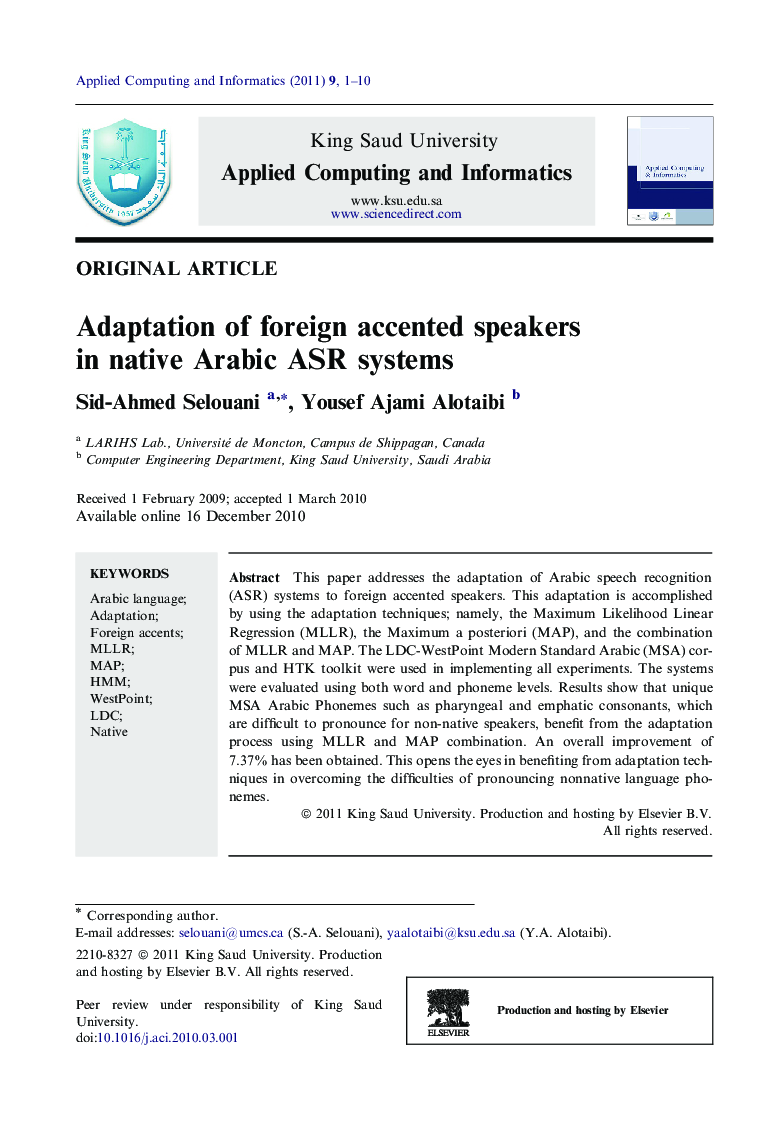| Article ID | Journal | Published Year | Pages | File Type |
|---|---|---|---|---|
| 467405 | Applied Computing and Informatics | 2011 | 10 Pages |
This paper addresses the adaptation of Arabic speech recognition (ASR) systems to foreign accented speakers. This adaptation is accomplished by using the adaptation techniques; namely, the Maximum Likelihood Linear Regression (MLLR), the Maximum a posteriori (MAP), and the combination of MLLR and MAP. The LDC-WestPoint Modern Standard Arabic (MSA) corpus and HTK toolkit were used in implementing all experiments. The systems were evaluated using both word and phoneme levels. Results show that unique MSA Arabic Phonemes such as pharyngeal and emphatic consonants, which are difficult to pronounce for non-native speakers, benefit from the adaptation process using MLLR and MAP combination. An overall improvement of 7.37% has been obtained. This opens the eyes in benefiting from adaptation techniques in overcoming the difficulties of pronouncing nonnative language phonemes.
